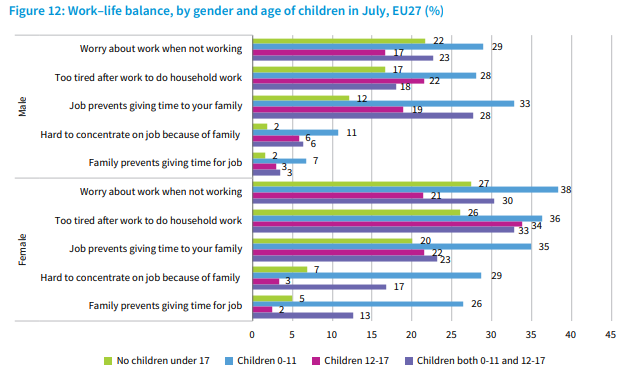Far from being over, the economic and social crisis caused by the Covid-19 pandemic has already had a tremendous impact on the international labour market. Personal and household services (PHS), often excluded from national recovery schemes, are among the sectors most affected in the short term.
According to figures released by the International Labour Organisation on 15 June, around 55 million domestic workers have already been significantly impacted by the crisis. Among them 76% belong to the informal economy and are undeclared. Despite the measures implemented by some Member States, the European Union share this reality.
Thus, according to the ILO, undeclared domestic workers have particularly suffered from containment and social distancing measures, which have often prevented them from maintaining their activity. Most of them have worked part-time or simply lost their jobs during the last few months. Deprived of pay and social protection, these workers have rarely been represented by social partners advocating for their rights and access to unemployment schemes. Therefore, it has deeply increased their precariousness, particularly that of women, highly represented among domestic workers.
Declared workers have also been impacted by the Covid-19 pandemic. Despite the slow done in their activity, they have not always been included in the short time working schemes set up by the Member States. Moreover, due to the health emergency, domestic workers were not allowed to acquire personal protective equipment or to follow appropriate training to continue their activity.
In addition to schools and workplaces closures, the lack of quality personal and household services has gradually increased gender inequalities within households. Before the crisis, women spent an average of 22 hours a week on family or household responsabilities compared to only 9 hours for men in the EU, according to the European Institute for Gender Equality. It is unlikely that the presence of men in the home has reversed this trend. The crisis has also strengthened the precariousness of single parents in the EU. Among them, 85% are women and 48% are already considered at risk of poverty or social exclusion.
This has naturally had consequences on the work-time balance of European households. The decrease of personal and household services combined with the closure of schools and childcare facilities has obviously increased family responsibilities. Women have mostly suffered from this situation and have not benefited from the conditions provided by teleworking in the same way as men, as illustrated in the following chart published by Eurofound.

24% of the women surveyed in April said they were too tired to take on family and domestic responsibilities after work compared to 20% of men. After a period of widespread confinement in the EU, these percentages raised to 31% and 26% respectively. Women most affected by the lack of work-life balance are those with children under the age of 12, i.e. not autonomous. Most of them are between 35 and 49 years old and could therefore benefit from personal and household services.
Despite this, women overall assumed more responsibilities than men during this period. According to the report, in July they spent 35 hours per week on family responsibilities and 18 hours per week on domestic responsibilities, compared to 25 and 12 hours per week for men.
Considering the situation, EFFE published in April, alongside EFFAT, EFSI and Uni-Europa, a joint statement highlighting the strategic role played by the sector during the crisis and calling on the public authorities to take concrete measures to support it.
The heterogeneity of the measures implemented by Member States to support domestic workers do not permit an overall assessment of the sector’s resilience across the EU. However, in the framework of the Ad-PHS project, a report should be finalised at the end of November 2020 to identify the support measures put in place by MS.